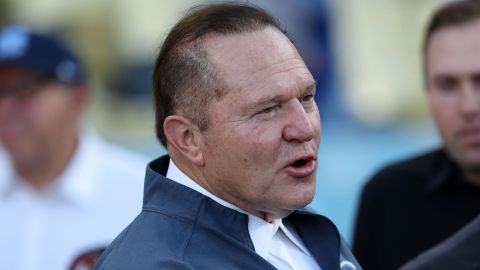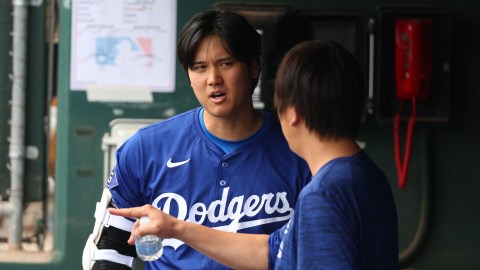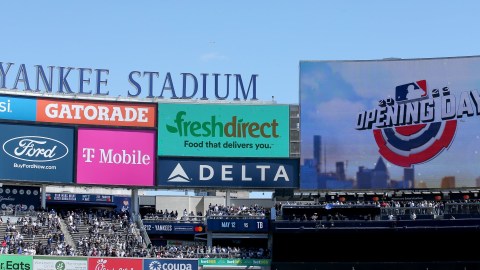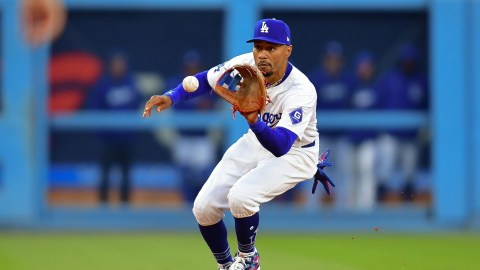 Achieving parity in sports is a constant balancing act, and the governing rules which (attempt to) create such a level playing field are like a pendulum, swinging back and forth in either direction. That all being said, the pendulum governing Major League Baseball’s free agents has swung too far against the players, and with Kyle Lohse serving as a prime example, need to be amended immediately.
Achieving parity in sports is a constant balancing act, and the governing rules which (attempt to) create such a level playing field are like a pendulum, swinging back and forth in either direction. That all being said, the pendulum governing Major League Baseball’s free agents has swung too far against the players, and with Kyle Lohse serving as a prime example, need to be amended immediately.
In short, it’s absolutely absurd that the longtime St. Louis starter hasn’t found a home, yet. But, at the same time, you can’t necessarily blame teams for backing off of the 34-year-old — the cards (lame pun very much intended) seem thoroughly stacked against Lohse.
However, to understand why, we need to examine a little bit of the history of MLB’s collective-bargaining agreement.
In 2002, baseball nearly suffered another work stoppage in the middle of the season, which likely would have threatened the playoffs and World Series. However, the agreement that the MLB Players Association and owners came to included significant concession to help small-market teams to help make them more competitive with free-spending clubs like the Yankees, who in the early aughts were buying up anyone they could. Part of that included the designation of type-A and type-B free agents, calculated by Elias Sports Bureau to be among the best 20 percent and 40 percent of players, respectively. Type-A free agents, for instance, required their new club to give up a first-round draft pick in compensation to the old team.
This system, while a valiant attempt to level the playing field for small-market teams, was amended slightly coming into the 2012 season. Nowadays, draft pick compensation is determined by where the player’s new salary ranks in relation to other players, and that’s why Lohse finds himself still unemployed despite spring training long having begun.
In short, the idea of compensating a team losing a high-importance free agent with a draft pick is solid — in theory. However, the MLBPA should take interest in the fact that this system, even as it exists today and through 2016 when the current CBA expires, still hurts the values of certain players.
In Lohse’s case, it doesn’t seem to be a case of unreasonable contract demands. Rather, asking for four years from a pitcher with his track record, even at 34 years old, was perfectly reasonable — particularly when Edwin Jackson can get four years from the Cubs on the same market. However, for teams who might otherwise be interested in Lohse for that kind of money, that first-round draft pick seemed too high a price, and thus Lohse is still on the market.
Now, this isn’t the fault of any specific defect of Lohse, baseball teams’ evaluation processes or the CBA. Some teams may have been scared off by the Dave Duncan effect, Lohse’s pitching coach with the Cardinals through the 2011 season, but after his success in 2012 that seems unlikely. What this does seem to be a case of is the ever-changing value that teams perceive of a draft pick.
Basically, those draft picks have become more and more valuable to teams in recent years, and Lohse is seemingly the victim of a system that’s perhaps only a couple years out of date, but far enough behind to screw him over. There’s no question that basing potential compensation off of salary rather than whatever metrics Elias uses is preferable, but it’s still a flawed method.
Now, of course there may never be a perfect system or algorithm that determines what free agents demand compensation and who doesn’t. But the point is the system needs to be more flexible year-to-year than it is, because the way evaluators weigh draft picks, free agents and money is an ever-changing beast — and it’s not fair to players like Lohse to be devalued so greatly for something so arbitrary.
So, this won’t be the space to suggest a specific fix, and maybe that’s unfair. It’s obviously a complicated issue, but it’s one that needs to be looked at and considered from multiple angles. Simply judging a player’s worth for a compensatory return 0f a draft pick based on salary just isn’t adequate.
Because then Kyle Lohse doesn’t play baseball until perhaps after June — when, after the amateur draft, he can sign without his new team having to give up a draft pick to the Cardinals. And when Kyle Lohse doesn’t get to play baseball for such arbitrary reasons, all of baseball is devalued.
Photo via Facebook/Kyle Lohse



